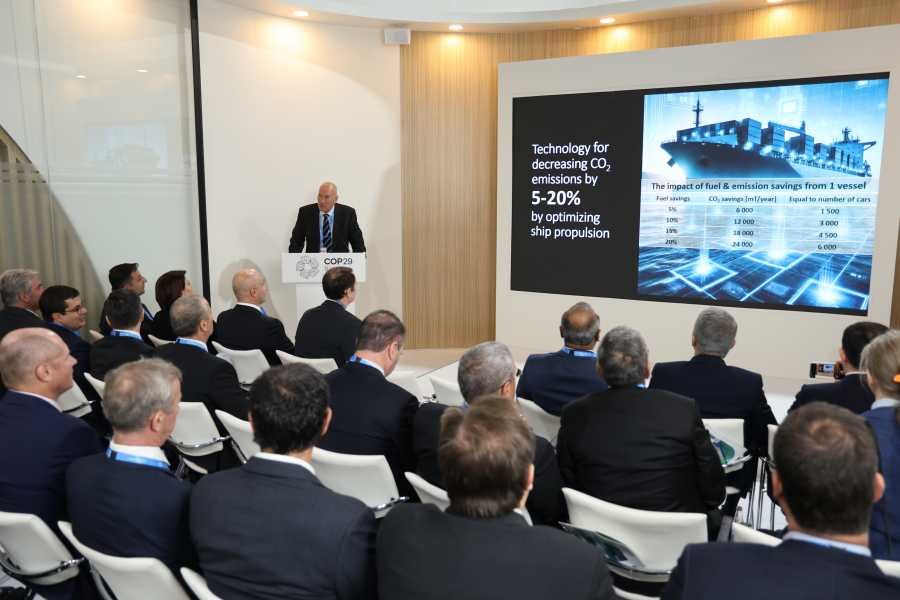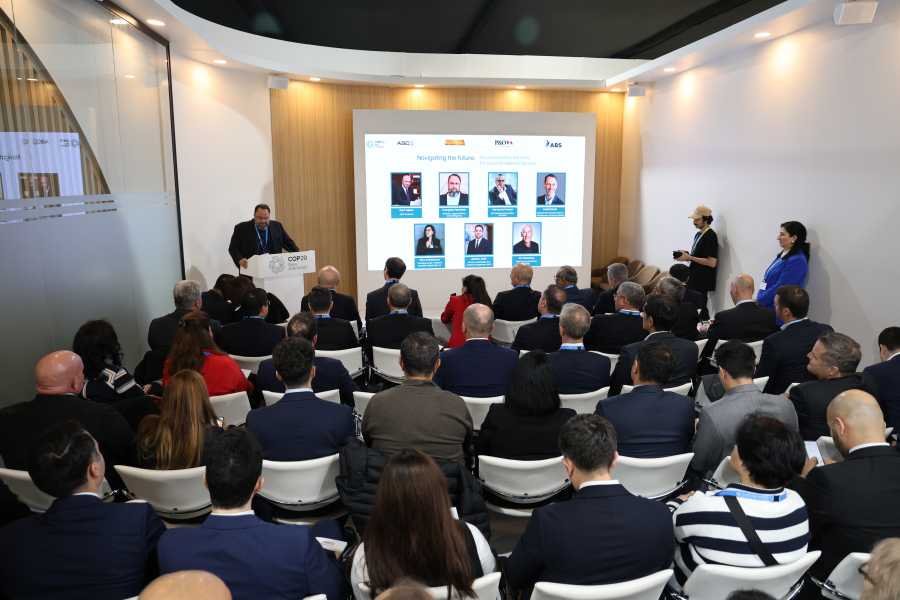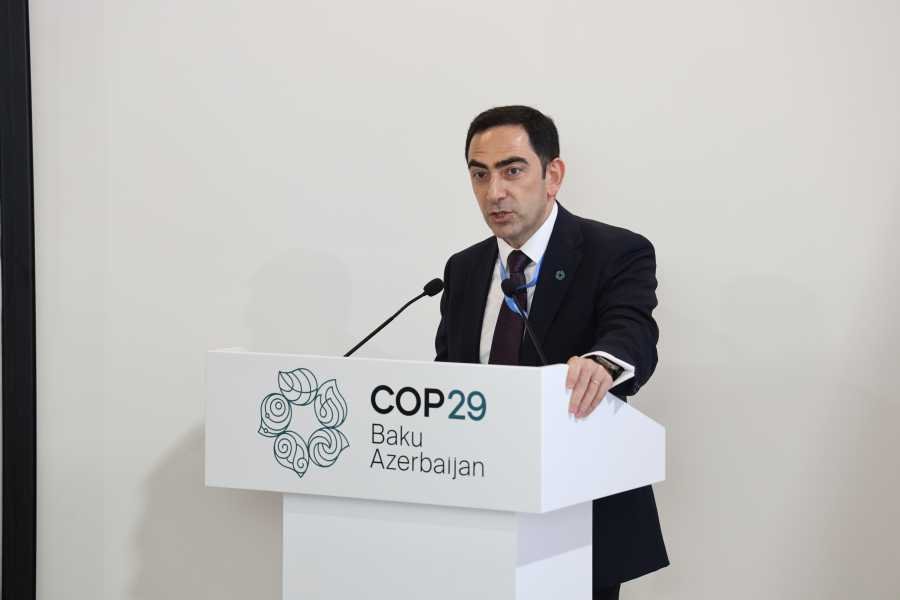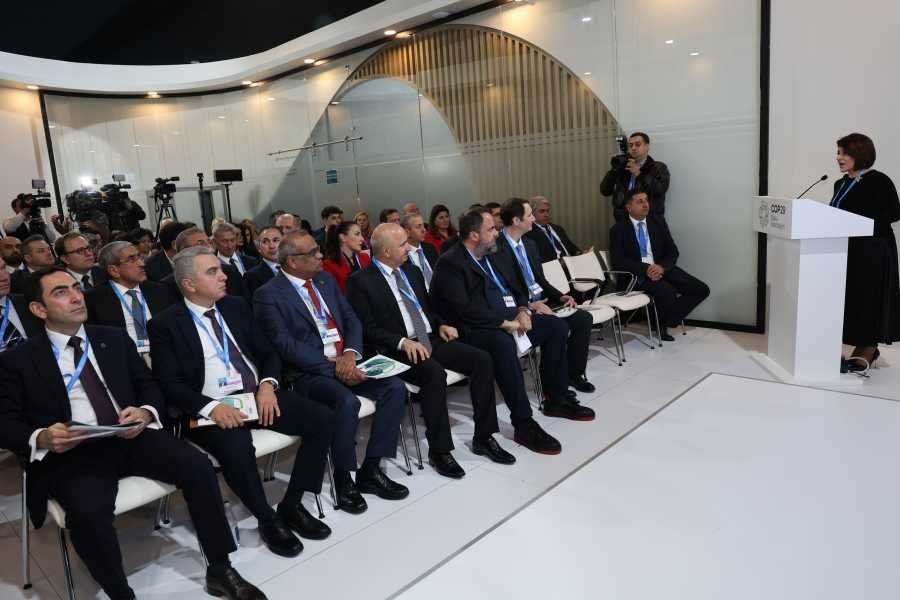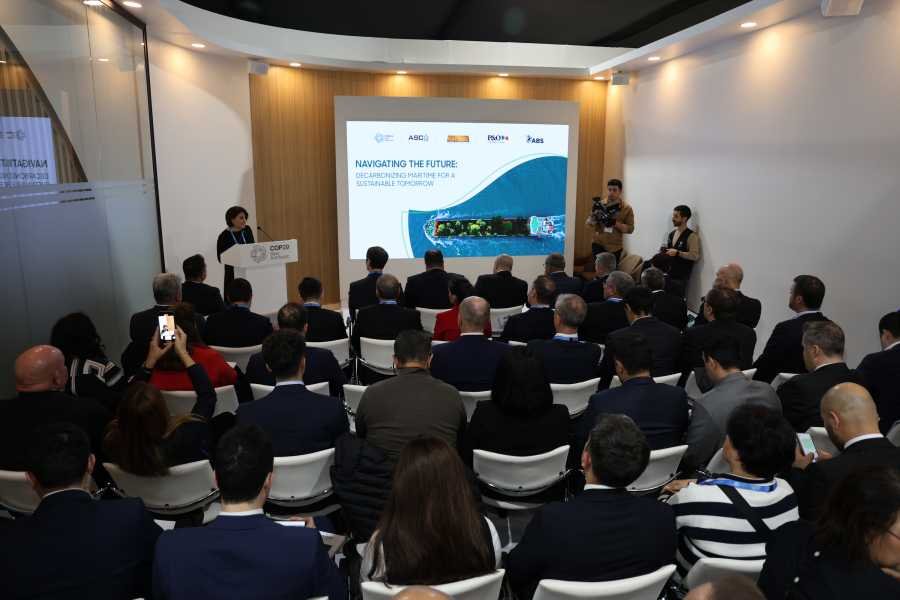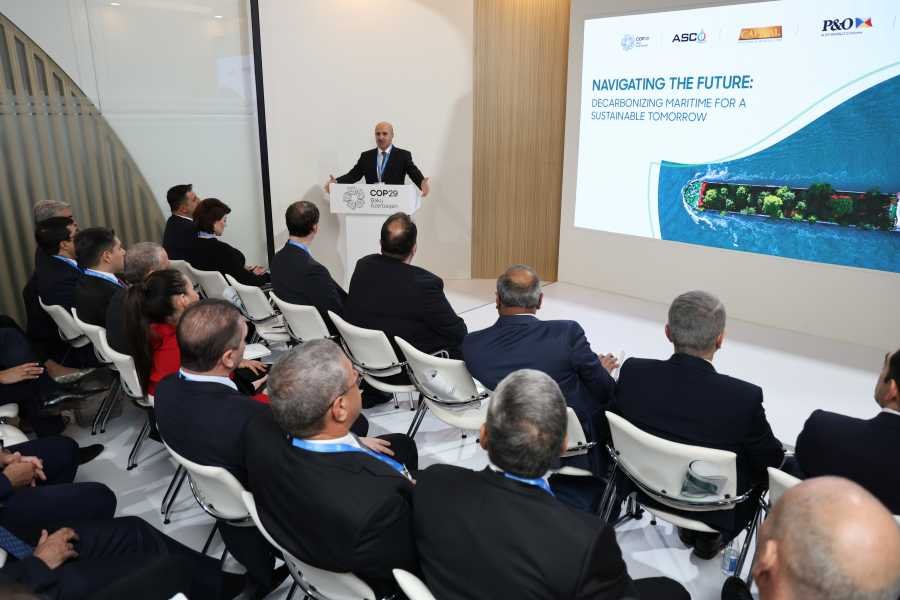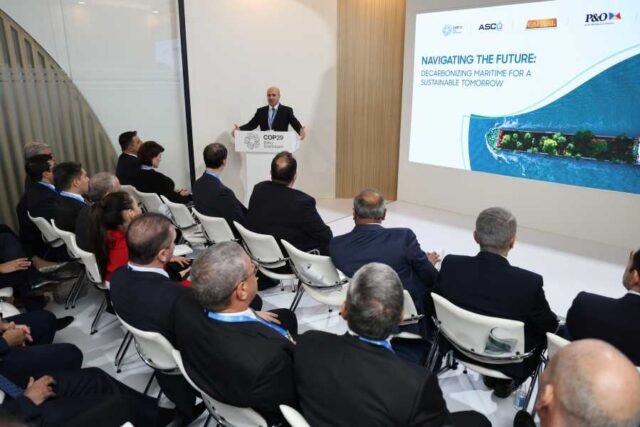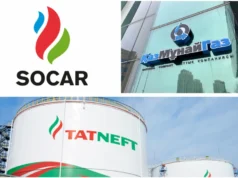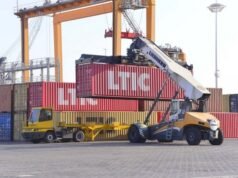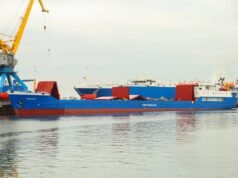As part of the 29th session of the Conference of the Parties to the United Nations Framework Convention on Climate Change (COP29), discussions on the topic “Navigating the future: Decarbonizing maritime for a sustainable tomorrow” were held. The discussions, organized by ASCO, brought together senior executives from reputable shipping companies, port operators, classification societies, and leading experts in the international maritime sector.
In his opening remarks, Chairman of ASCO’s Management Board, Rauf Valiyev, highlighted the historic significance of Azerbaijan hosting COP29, one of the world’s largest events. He also provided insights into ASCO’s initiatives and strategic goals in the field of decarbonization. According to him, ASCO achieved a 20% reduction in emissions compared to 2012, surpassing the International Maritime Organization’s (IMO) 2030 target ahead of schedule: “This achievement wasn’t easy, but we accomplished it by investing in new vessels, modernizing existing ones, decommissioning old ships, and improving energy efficiency. Our ultimate goal is to achieve zero emissions by 2050, as outlined by IMO. To this end, we are actively working on developing sustainable solutions and exploring strategies to reduce carbon emissions.”
CEO of the “Baku International Sea Trade Port” CJSC, Taleh Ziyadov, emphasized the importance of cooperation in achieving sustainable decarbonization. He stated: “We are diligently working with all our partners, including ASCO, toward green maritime initiatives, and I am confident that we will jointly reach the zero-emission target.”
ASCO’s Director of Sustainability and Emissions Management, Alekper Azizli, delivered a comprehensive presentation on the company’s emissions reduction strategy, detailing the phased activities planned to achieve zero emissions by 2050.
Founder and Chairman of “Capital Maritime and Trading Corp,” Evangelos Marinakis, shared his company’s experience in transitioning to green energy, dual-fuel engine technologies, and other innovative solutions aimed at energy efficiency.
CEO of “P&O Maritime Logistics,” a member of the “DP World” group, Narayana Prasad Narumanchi Venkata Lakshmi, elaborated on decarbonization strategies in his presentation titled “Decarbonization Strategies: Tackling Scope 1, 2, and 3 Emissions.” He provided examples of approaches and practices implemented in the international shipping sector, including within his own company.
Ezekial Davis, Vice President of Business Development for the European Division of the American Bureau of Shipping (ABS), underlined the transformative nature of decarbonization in the maritime industry: “For me, the true solution to maritime decarbonization depends on three key elements—awareness, collaboration, and the human factor. While the challenges are immense, these fundamental elements guide us in the right direction. Partnering with organizations like ASCO, we contribute to transforming our industry.”
Per Österberg, Chief Commercial Officer of QTAGG, delivered a presentation on “New Decarbonization Technologies: EcoPilot.” He discussed ASCO’s installation of the EcoPilot system on its vessels, describing it as a significant step toward adopting innovative and green technologies.
It is worth noting that the EcoPilot system plays a vital role in reducing fuel consumption and minimizing carbon emissions. By optimizing the vessel’s trajectory, speed, and engine performance, the system ensures environmentally efficient navigation.
During the event, ASCO’s video prepared within the COP29 framework was showcased, reflecting the organization’s steps toward reducing emissions in maritime transport and its future plans.
The event concluded with the presentation of ASCO’s book-photo album “On the same wave with time,” which narrates the company’s 165-year history. Published in both Azerbaijani and English, the book was gifted to attendees.

